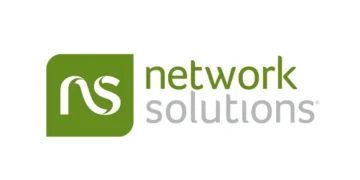Are you ready to make a real difference in the world? Social impact jobs give you that chance. These roles are in many areas, like nonprofits and green businesses. Companies like BASTA, Earthjustice, and CompoSecure are at the forefront, with jobs paying from $60,000 to $350,000 a year.
The United Nations has set 17 Sustainable Development Goals. These goals inspire us to work towards a better future. This has led to more jobs in education, fighting climate change, and justice. Companies are teaming up with groups focused on change, opening up new paths in leadership and protecting the environment.
Social impact jobs are found in charities and government too. You could work in human rights, investing for good, or designing things that are sustainable. These jobs often give young leaders a chance to stand out. They also have fewer gender gaps and more diversity at the top.
Key Takeaways
- Social impact jobs span various sectors with competitive salaries
- UN Sustainable Development Goals drive growth in purpose-driven work
- Diverse career options include nonprofits, government, and sustainable businesses
- Social entrepreneurship offers leadership opportunities for underrepresented groups
- Salaries range from $39,702 for Family Support Workers to $98,137 for CSR Managers
What are Social Impact Jobs?
Social impact jobs aim to make the world a better place. They are found in many fields, like nonprofits, corporate social responsibility, and community development. These jobs help solve big problems and support the United Nations’ Sustainable Development Goals.
Definition and Importance
Jobs with a social impact directly help people or the planet. They exist in nonprofits, businesses, and government. These roles are key to solving issues like poverty, climate change, and inequality.
Many people find joy in these jobs. They match their personal values with their work goals.
Types of Social Impact Jobs
There are many types of social impact careers. Nonprofits need people for fundraising, managing programs, and advocacy. Corporate jobs focus on being green and helping the community.
Community development jobs aim to better local areas and economies. Other fields include environmental work, social work, and investing in sustainable projects. While salaries vary, some jobs offer pay as good as traditional corporate jobs.
Benefits of Working in Social Impact Roles
Working in ethical employment has its perks. These roles bring personal fulfillment and career growth. Many jobs in this field come with good pay, from $67,000 to $215,000 a year.
Personal Fulfillment
Social impact jobs let you match your values with your work. You can help in areas like economic growth, health, and fighting climate change. This purpose brings joy and motivation to your job.
Seeing the positive change you make can be incredibly rewarding. It motivates you to keep working for the greater good.
Career Growth Opportunities
The social impact sector has many career paths. You can work for nonprofits, government, or socially responsible companies. Big firms like McKinsey and Deloitte have social impact teams.
These roles help you improve your problem-solving, communication, and project management skills. The sector is growing, with more remote jobs available.
Platforms like Idealist list over 150,000 nonprofits with job openings. Whether you’re looking for a full-time job or a career change, there are plenty of opportunities. Working in smaller organizations can give you hands-on experience and help you grow your network.
How to Identify Social Impact Employers
Finding employers who care about social impact is exciting for those passionate about making a difference. Many companies now focus on being sustainable. This change offers a wide range of jobs for those looking for meaningful careers.
Researching Nonprofits
Nonprofits are often at the forefront of social impact work. When looking into these organizations, find ones that tackle issues you’re passionate about. They might focus on climate change, community development, or sustainable practices.
Check their mission statements, annual reports, and ongoing projects. This will help you see if their goals align with yours.
Evaluating Corporate Social Responsibility
Corporate Social Responsibility (CSR) is key in today’s business world. Look for roles like Sustainability Director, CSR Manager, or Environmental Engineer. These jobs often lead efforts to make the company more sustainable.
Review the company’s ESG (Environmental, Social, and Governance) reports. This will show their dedication to social and environmental issues. Companies like LEGO aim to use 100% sustainable materials by 2030, showing strong CSR.
Remember, good employers talk about their social efforts. They might offer volunteer chances, match donations, or let employees give grants. These signs show they’re serious about making a difference, making them great for those seeking purposeful careers.
Skills Required for Social Impact Jobs
Purpose-driven work needs special skills. With more mission-driven jobs, employers look for people who can handle big social and environmental issues. The Bureau of Labor Statistics shows more jobs in non-profit and socially responsible fields.
Communication and Collaboration
Good communication is key in social impact jobs. Workers must share complex ideas with different groups. Teamwork is also vital in these roles.
Working together helps achieve goals. This teamwork can also make a company more successful financially.
Problem-Solving and Critical Thinking
Social impact jobs need strong problem-solving skills. Critical thinking helps tackle big issues like climate change and social justice. These skills are essential as 63% of consumers want companies to tackle future challenges.
Working in social impact can be very rewarding. It offers good pay and job security. For those looking for meaningful work, these skills are essential. As more people focus on sustainable investing and social responsibility, these skills become even more important.
Crafting an Impactful Resume
Your resume is key to getting social impact jobs and nonprofit careers. It’s vital to make every word count. Recruiters only spend 7 seconds on each resume. Let’s look at how to make your resume stand out in the competitive social impact world.
Tailoring Your Experience
Customize your resume for nonprofit jobs. Use the STAR method to show your achievements. Describe the Situation, Task, Action, and Result for each key accomplishment.
Highlighting Relevant Skills
For social impact jobs, focus on both hard and soft skills. Hard skills might be grant writing or data analysis. Soft skills could be teamwork or adaptability.
Use bullet points to list your skills and achievements. When you can, quantify your achievements, like “Increased volunteer participation by 30%.” This makes your impact clear and memorable.
Keep your resume short, ideally one page. Use a clean, easy-to-read font and 1-inch margins. Avoid graphics or photos, as they can mess up applicant tracking systems used by 98% of Fortune 500 companies. By following these tips, you’ll create a resume that shows you’re ready for social impact roles.
Networking for Social Impact Opportunities
Networking is key to finding jobs that make a difference. It helps you meet people who share your goals in community development and ethical work. Let’s look at ways to grow your network for a fulfilling career in social impact.
Joining Relevant Organizations
Joining groups focused on social impact can lead to important connections. Impact Opportunity is a great place to start. They offer a job board and resources for those working in nonprofits and mission-driven companies.
They list a variety of jobs, from entry-level to leadership positions. Most of these are full-time, giving you a chance to make a real impact.
Utilizing Social Media Platforms
Social media is a strong tool for networking in social impact. Sites like LinkedIn let you connect with others in your field. Share articles, join groups, and talk in discussions to grow your network.
Impact Opportunity also shares insights on remote work and career advice. These can be great topics to discuss online.
Networking is about building relationships. Go to virtual events, join webinars, and contact professionals in your field. With part-time jobs and internships available, there’s a lot to discover through your network.
Education and Training for Social Impact
Getting the right education can help you grow in the social impact field. Many companies look for people with knowledge in corporate social responsibility and environmental sustainability. Let’s look at ways to improve your skills and qualifications.
Relevant Degree Programs
Universities have programs for careers in social impact. You can study sustainable development, social entrepreneurship, or nonprofit management. These studies give you a solid base in areas like climate action and community development.
After graduating, you can find jobs in the nonprofit sector. Salaries range from $55,000 to $190,000 per year.
Certifications and Workshops
If you’re already working, certifications and workshops are great options. Online courses like “Global Sustainability and Corporate Social Responsibility” teach important skills. The “Net-Zero Standard e-learning course” helps set climate targets.
These programs can lead to jobs in climate and sustainability. Salaries range from $54,000 to $135,000 annually.
Investing in education for social impact careers is rewarding. Whether through formal degrees or workshops, you’ll learn valuable skills. With the right training, you can make a difference in the world.
Volunteering: A Path to Social Impact Careers
Volunteering is a great way to start a career in social entrepreneurship and positive impact roles. It lets you gain experience and connect with the community. Many groups offer volunteer spots that can turn into paid jobs, with salaries from $24.66 an hour to £65,000 a year.
Gaining Experience Through Volunteering
Volunteering gives you a peek into the social impact world. People with volunteer experience are 27% more likely to get a job. In fact, 81% of HR leaders think volunteering is important when hiring. You can learn skills like public speaking, project management, and leadership through volunteering.
Making Connections in the Community
Volunteering helps you meet like-minded people. This network can open doors to future jobs in social entrepreneurship and positive impact roles. Many nonprofit workers start after volunteering or interning.
Nonprofits often hire social media experts right out of college. They value millennials’ skills in platforms like Facebook and Twitter.
Volunteering lets you see different parts of an organization. You might find new skills or interests. This experience can make your resume stand out. Remember, volunteering is a smart move towards a rewarding career in social impact.
Job Search Strategies for Social Impact Positions
Finding purpose-driven work can be tough. The social impact sector has many opportunities, but they’re not always easy to find. To discover these mission-driven jobs, you need smart search strategies.
Online Job Boards and Resources
Begin with job boards that focus on social impact careers. Sites like Idealist, Net Impact, and DevEx list jobs in nonprofits and social enterprises. These platforms often match your values and skills.
LinkedIn is also a great resource. Many organizations post jobs there. You can follow companies you’re interested in and set up job alerts.
Leveraging Your Network
Networking is vital in the social impact world. Many jobs are found through referrals. So, building relationships is key.
Attend industry events and join professional associations. Connect with people in your field. Share your passion for social change and your interest in mission-driven jobs.
Volunteering or interning can give you experience and expand your network. It can also lead to job opportunities. Remember, the social impact space is always changing. Stay informed with blogs, podcasts, and newsletters.
Preparing for Interviews in the Social Sector
Getting ready for interviews in nonprofit careers and corporate social responsibility roles is key. The social sector job market is tough, with many applicants for one spot. To shine, you must show your skills and passion well.
Researching the Organization
Learn all you can about the organization before your interview. Know their mission, values, and latest projects. This helps you match your answers with their goals and shows you care about their work.
Common Interview Questions
Be ready for questions about your commitment to social change and solving problems. You might talk about your experience in areas like economic development, global health, or climate risk. Practice answering questions about leading impactful projects or solving public sector challenges.
Interviews in the social sector can be different. Some might have just one phone call, while others have many rounds over months. Trust your gut and be ready for anything. With good research and practice, you’ll boost your chances of getting that dream job in social impact.
The Role of Mentorship in Social Impact Careers
Mentorship is key in shaping successful social impact careers. It gives guidance, support, and insights for those in community development and ethical jobs. A LinkedIn survey shows 76% of professionals think having a mentor is vital for career success.
Finding a Mentor
To find a mentor, start by networking in your field. Join groups focused on community development or ethical jobs. Attend events and meet experienced professionals who share your values. Many companies have formal mentorship programs, with 71% of Fortune 500 companies having them.
Benefits of Having a Mentor
Mentorship in social impact careers offers many benefits. Mentored employees are five times more likely to get promoted than those without mentors. Mentors share industry insights, help with career challenges, and guide on ethical decisions.
They also introduce you to important contacts, expanding your network. This opens doors to new opportunities in ethical jobs. Mentorship boosts personal growth and job satisfaction. A Deloitte study found 83% of professionals with mentors were happy with their career progress.
In the social impact sector, where passion and purpose are key, mentors keep you motivated. They help you stay focused on your goals while making a positive impact in your community.
Trends and Future of Social Impact Jobs
The world of social impact jobs is changing fast. We’re seeing big steps forward in environmental sustainability and social entrepreneurship. These changes are creating new chances for people who want to make a difference.
Remote Work Opportunities
Remote work is becoming more common in social impact jobs. Places like the Stockholm Environment Institute now have remote jobs. This lets people help global causes from anywhere.
This change also helps the planet. It cuts down on carbon emissions, which is good for our future.
Growth Areas in Social Impact Sectors
Climate change, sustainability, and social justice are big areas to watch. The European Union’s new rules on corporate sustainability are creating more jobs. They need people who can track and share sustainability data.
Companies that focus on the environment, society, and good governance are doing well. McKinsey says they’re beating their competitors.
Artificial Intelligence is also changing things. Unilever is using AI to fight discrimination in hiring. Other companies are using it to improve their social work. With these trends, the future of social impact jobs looks bright. Skilled people can earn between $65,000 and £65,000 to help solve big problems.
FAQ
What are social impact jobs?
Social impact jobs help make the world a better place. They are found in many places, like nonprofits and companies that care about the environment. People in these jobs can use their skills to help others and protect our planet.
What are some examples of social impact organizations and salary ranges?
Organizations like Earthjustice and BASTA offer jobs that pay between ,000 and 0,000 a year. Places like National Western Center Authority and Russian Riverkeeper also have jobs with salaries from ,000 to 0,000.
What skills are important for social impact jobs?
Important skills include talking well, working together, solving problems, and thinking critically. These skills help tackle big challenges. Companies like Nesta and Urban Adamah look for people with these abilities.
How can I tailor my resume for social impact roles?
Highlight your skills and experiences that show you care about making a difference. Talk about specific skills that match the job you want. Groups like Trust for Public Land want to see you share their values.
How can I network for social impact opportunities?
Join groups, use LinkedIn, and go to events to meet people in your field. Talk to others about your passion for social impact. Places like Population Health Learning Center are great for networking.
What education or training is beneficial for social impact careers?
Getting degrees or certifications in areas like sustainable development can help. Companies like Canopy value education in these fields. It shows you’re serious about making a difference.
How can volunteering help in finding social impact jobs?
Volunteering gives you experience and connections. It helps you learn about different causes and organizations. Sometimes, it can even lead to a job. Groups like Accion Opportunity Fund offer paths from volunteering to employment.
What are some effective job search strategies for social impact positions?
Use job boards like Probably Good and 80,000 Hours for social impact jobs. Also, use your network and attend events. Companies like BUILD post jobs on these platforms.
How should I prepare for interviews in the social sector?
Research the organization and practice interview questions. Show your passion for social impact and how your skills fit the job. Companies like MassChallenge want to see you understand their mission.
What are the benefits of having a mentor in social impact careers?
Mentors offer advice, insights, and connections. They help with career challenges and finding new opportunities. Groups like Climate & Wildfire Institute have mentors ready to help.
What are some current trends in social impact jobs?
Trends include more remote work and jobs in climate change and social justice. Companies like Girls Who Code are leading these changes. They offer jobs that reflect the changing world.





